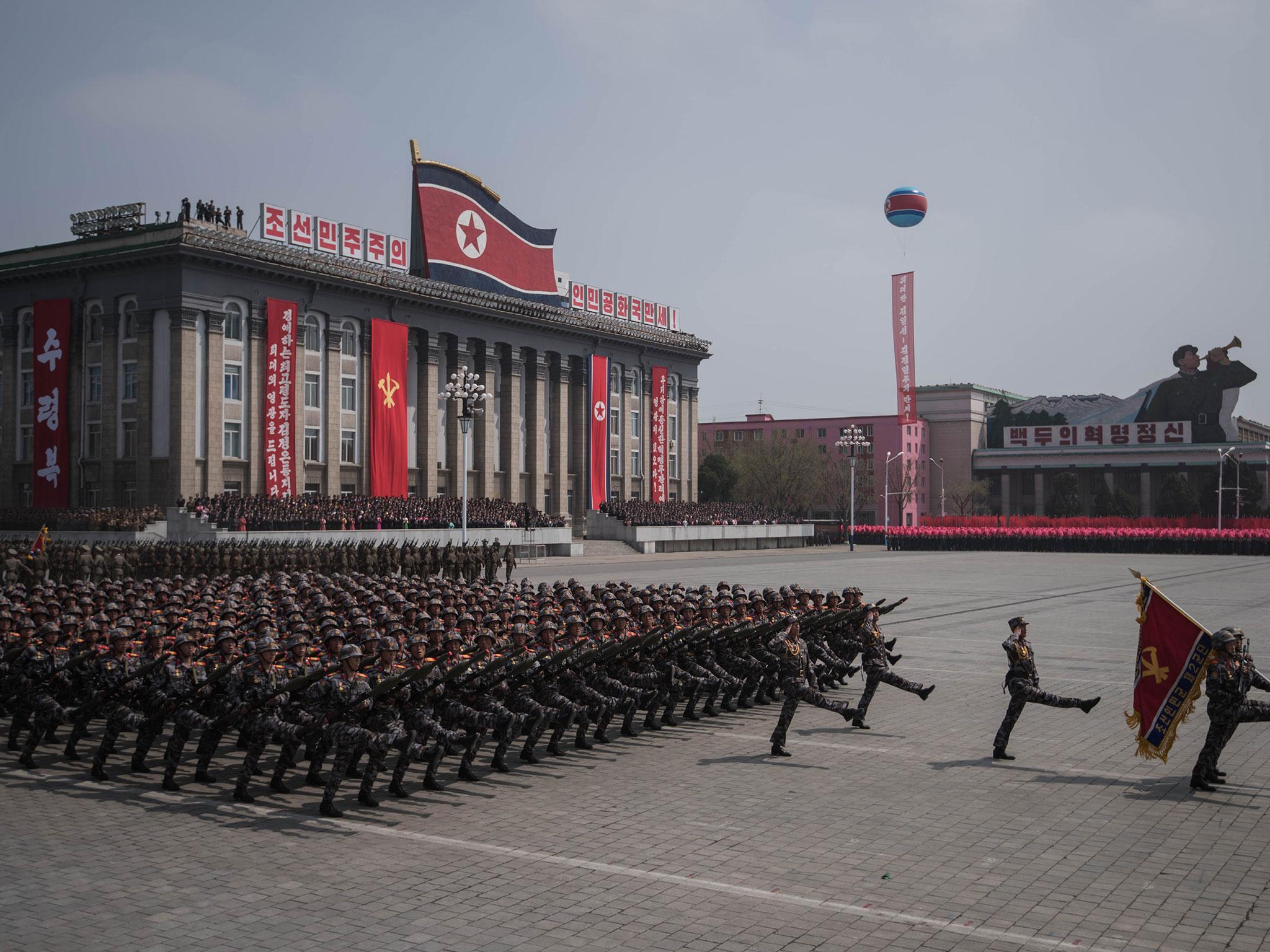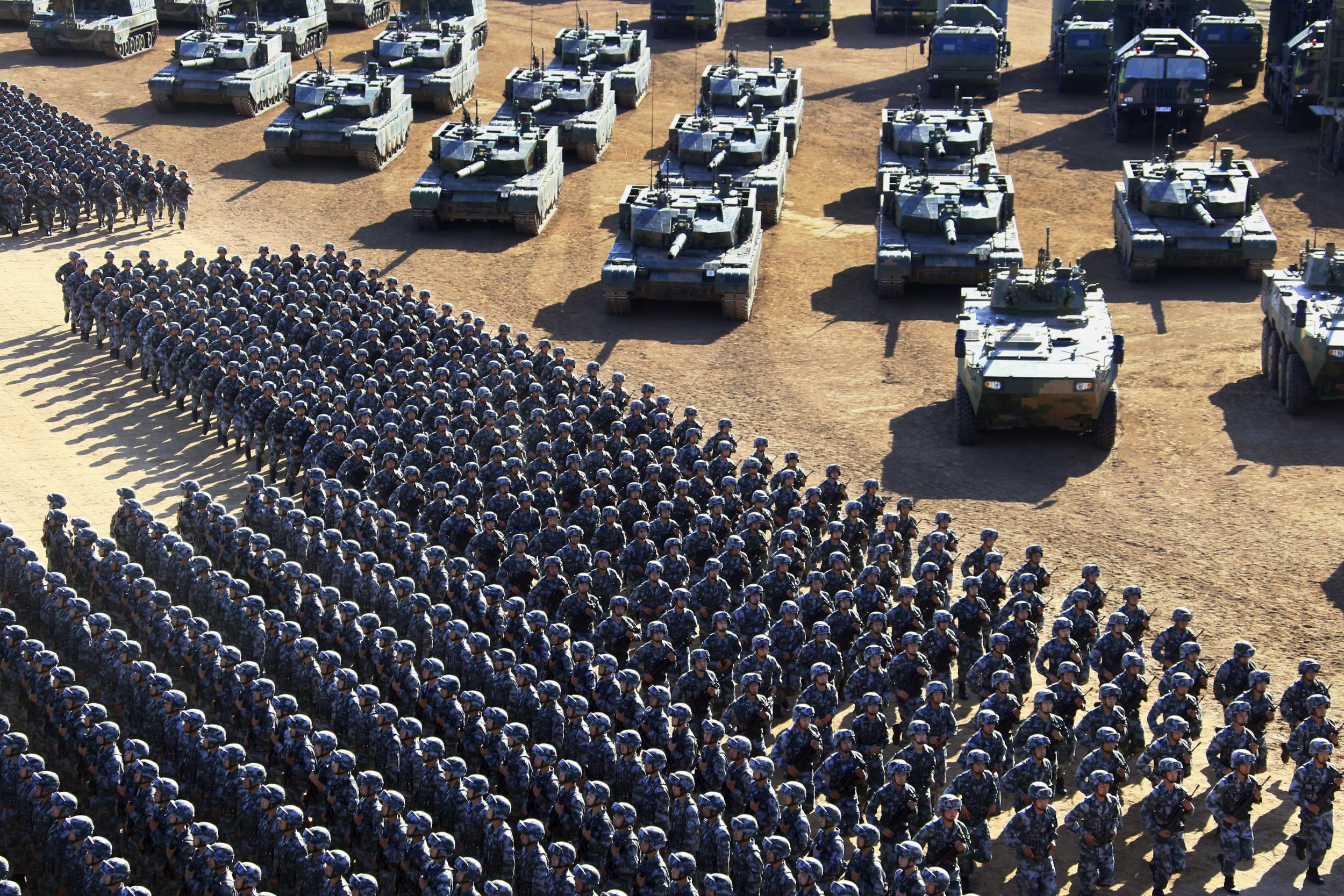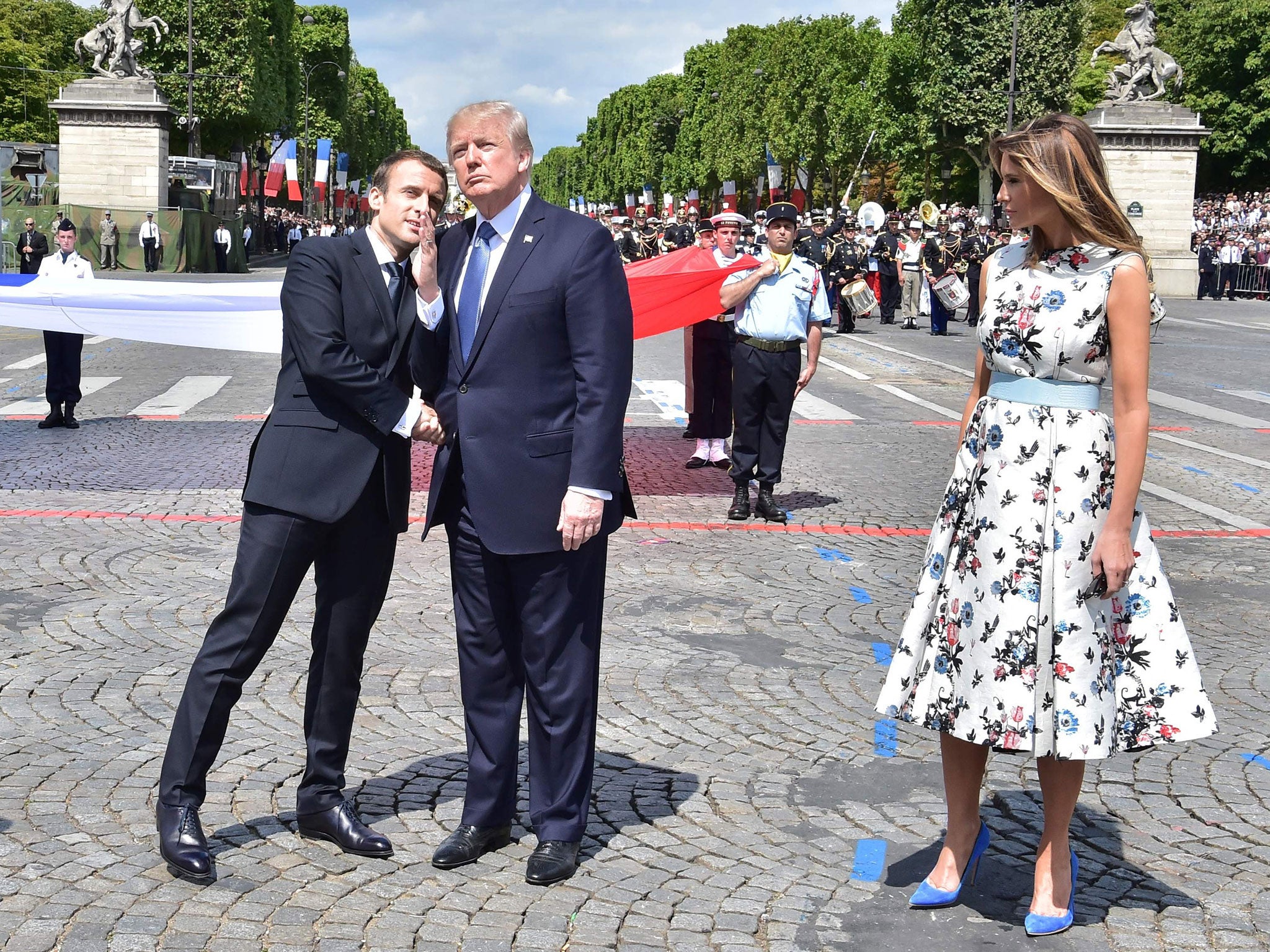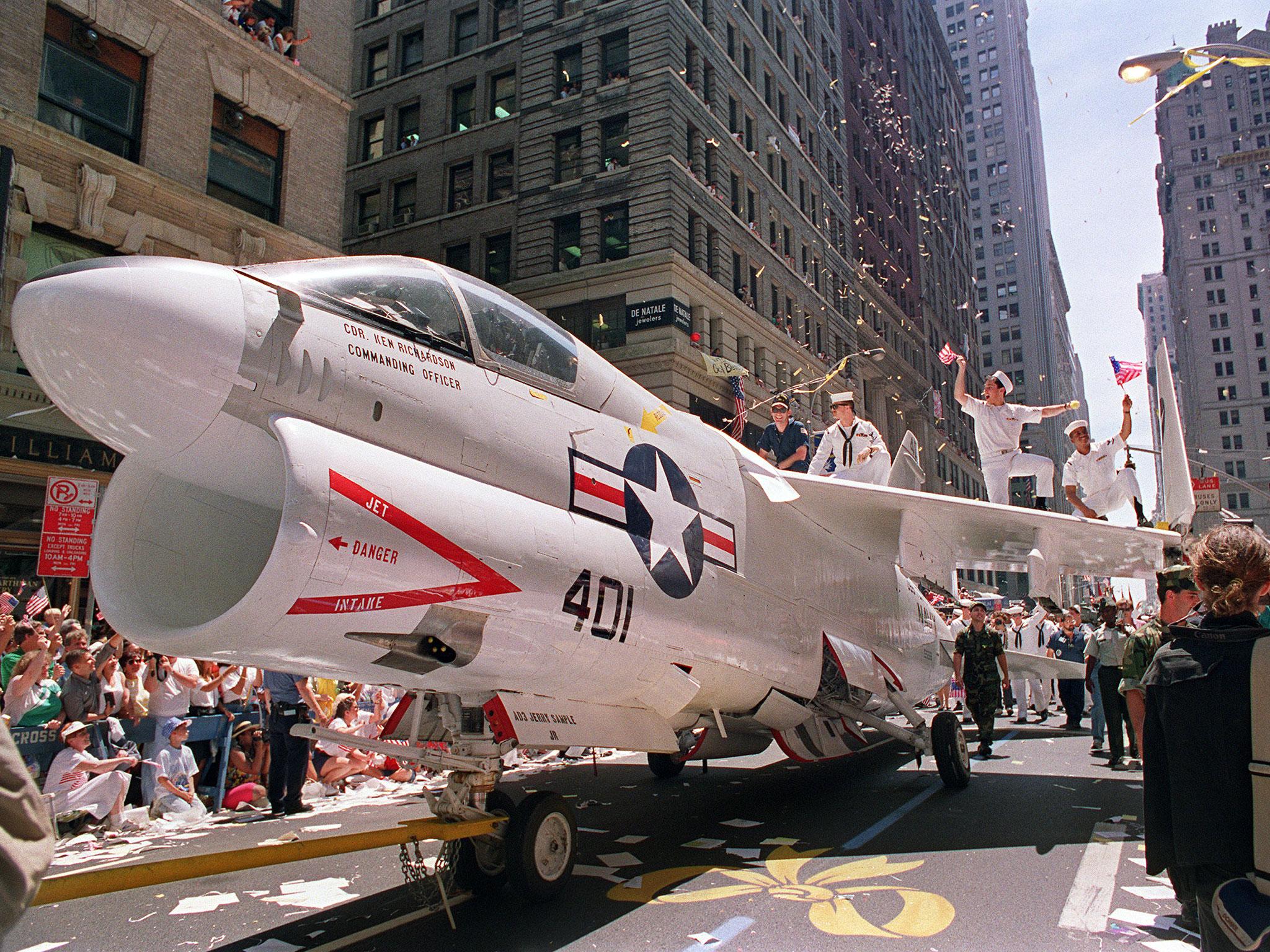Trump military parade: Which other countries have large-scale public displays of military might?
US President wants elaborate parade similar to France's Bastille Day celebrations

Donald Trump has ordered the Pentagon to plan a grand parade of the US armed forces in Washington to celebrate the country’s military strength.
The US President wants an elaborate parade later this year with marching soldiers and rolling tanks, similar to the Bastille Day parade he witnessed in Paris in July, according to Washington Post.
A White House statement said Mr Trump “has asked the Department of Defence to explore a celebration at which all Americans can show their appreciation.”
Traditionally, the US has not embraced ostentatious displays of raw military power. Such demonstrations are common in authoritarian states such as North Korea and China.
North Korea
North Korea regularly stages huge military parades in Pyongyang, where it has shown off its ballistic missiles as a claim of international prestige and influence.
Last year, the authoritarian regime used the occasion to reveal new long-range and submarine-launched missiles.
Parades are typically organised to commemorate key dates on the North Korean calendar, and last year’s parade marked the 105th anniversary of the birth of Kim Il-sung, who founded the state’s totalitarian system and Juche ideology.
During the parade, tanks and missile systems rolled through the streets of Pyongyang, while goose-stepping soldiers filled Kim Il-sung square and planes flew in formation overhead.
This week could see a similar display, as Kim Jong-un has ordered the military parade to celebrate the 70th anniversary of the Korean People’s Army to be brought forward to the day before the opening of the Winter Olympics in South Korea.
China

China also regularly seeks to show off its military might and parades have become more common since Xi Jinping became President in 2012.
As part of the celebrations to mark the 90th anniversary of the People’s Liberation Army last July, Mr Xi inspected 12,000 troops along with tanks and missile launchers.
More than 100 fighter jets flew overhead and almost 600 types of heavy weaponry were put on display.
A month before, the President inspected 20 PLA squads in Hong Kong to mark 20 years since Beijing took over the city.
During a military parade to commemorate the 70th anniversary of the end of the Second World War in 2016, 12,000 soldiers, 200 aircraft and 500 types of military hardware were paraded through the streets of Beijing.
Russia
Each year, Russia demonstrates its military capabilities in Moscow during an event celebrating Victory Day, which marks the anniversary of the defeat of Nazi Germany in the Second World War.
In 2015, Moscow hosted its biggest ever military parade to commemorate the 70th anniversary of the end of the Second World War, with around 16,000 soldiers, 200 armoured vehicles and 150 aircraft taking part.
Last year, Moscow showcased more than 10,000 troops, along with tanks and intercontinental ballistic missiles last year, though thick cloud cover forced the cancellation of a flyover by military aircraft.
During his parade address, Vladimir Putin, the President of Russia, called for the “consolidation of the entire international community” to combat terrorism and extremism.
Historic T-34 tanks, which played an influential role on the battlefields of the Second World War, were also displayed.
France
Last September, at a meeting with French President Emmanuel Macron, Mr Trump announced his idea of staging a grand parade of the armed forces in Washington on 4 July.
He reminisced about watching France‘s Bastille Day military parade when he visited Paris in July, and called the two-hour parade a “tremendous thing for France and for the spirit of France."
Mr Trump went on to say he wanted one on Pennsylvania Avenue in Washington that would be grander than the one he saw in Paris.

During the parade, US and French soldiers marched together to mark 100 years since the United States entered the First World War.
It included tanks, armoured vehicles and a flyover of US and French military jets.
“To a large extent because of what I witnessed, we may do something like that on July 4 in Washington down Pennsylvania Avenue,” Mr Trump told reporters in September. “We’re actually looking into it.”
The United States

Washington has held large military displays to mark significant occasions, including victories in war, with the last major military display marking the US victory in the Gulf War in 1991.
However, rolling tanks and marching troops down Pennsylvania Avenue is not typically done on the US Independence Day holiday.
US military members commonly participate in parades on the Fourth of July and other holidays to mark appreciation and remembrance of military veterans, but these typically do not include showy displays of military hardware.
It has long been considered conventional wisdom that the US does not need to boast of its military strength because it already is recognised as the leader of the Nato alliance and a model of military professionalism countries across the global seek to emulate.
Join our commenting forum
Join thought-provoking conversations, follow other Independent readers and see their replies
Comments